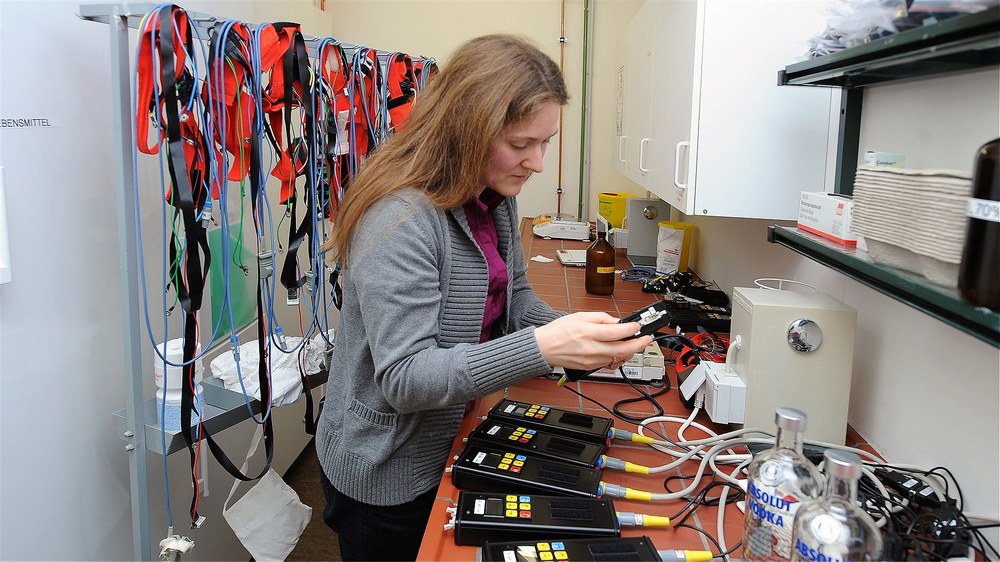Study shows: Drinking alcohol on long-haul flights could affect the health of sleeping passengers


- Study on the effects of moderate alcohol consumption on long-haul flights
- Study examined the impact on sleep, oxygen saturation and heart rate of test participants
A study now published in the journal "Thorax" by the DLR Institute of Aerospace Medicine shows that the consumption of alcohol in combination with reduced cabin pressure on board an aircraft can pose a risk to the health of sleeping passengers. The study, conducted by a team led by Eva-Maria Elmenhorst from the Department of Sleep and Human Factors Research at the DLR Institute of Aerospace Medicine is the first study to investigate this effect. The cabin pressure at cruising altitude is roughly equivalent to the air pressure on a mountain at an altitude of 2438 metres above sea level.
"The combination of alcohol and cabin pressure leads to a reduction in the oxygen level in the blood and increases the heart rate over a prolonged period of time, even in young and healthy people," says Elmenhorst. “Larger quantities of alcohol than those analysed in the study could intensify these effects, especially in older passengers and travellers with pre-existing medical conditions.”
The scientists pointed out that restricting access to alcohol on board long-haul flights should be discussed. Atmospheric pressure decreases exponentially with altitude and causes a drop in oxygen saturation, the researchers explain. Alcohol expands the blood vessels and increases the heart rate during sleep, similar to the effect of reduced atmospheric pressure. The scientists therefore wanted to find out whether the effects of the combination of alcohol and reduced cabin pressure at cruising altitude are intensified in sleeping passengers.
Forty-eight people between the ages of 18 and 40 took part in the study; they were randomly divided into two groups stratified by age, gender and weight (BMI). One half was placed in a sleep laboratory with normal ambient pressure (sea level), while the other half was located in an altitude chamber. In the altitude chamber, the researchers simulated a cabin pressure at cruising altitude (2438 metres above sea level).
Half of each group slept for four hours without consuming alcohol, while the other half slept for four hours after having drunk an alcoholic beverage. The amount of alcohol consumed was comparable to two cans of beer (5% alcohol content) or two glasses of wine (175 ml, 12% alcohol content). The participants' sleep, blood oxygen levels and heart rate were continuously monitored. This night was followed by at least two nights of recovery and an additional night during which the test conditions were reversed.
Analyses of the results showed that the combination of alcohol and simulated cabin pressure at cruising altitude led to a drop in the levels of oxygen in the blood to just over 85% and to a compensatory increase in the heart rate to approximately 88 beats/minute whilst sleeping. There was a reduction in deep sleep and REM sleep, both of which are important for sleep recovery.
The authors of the study conclude: “The results suggest that the combination of consuming alcohol and sleeping under hypobaric conditions places a significant strain on the heart, even in young and healthy individuals, and could result in worsening symptoms in patients suffering from heart or lung conditions.” The researchers advocate that doctors, passengers and crew should be informed about the potential risks. Furthermore, it might make sense to consider changing the regulations to limit access to alcoholic beverages on board aircraft.
Publication:
Research: Effects of moderate alcohol consumption and hypobaric hypoxia: implications for passengers’ sleep, oxygen saturation and heart rate on long-haul flights. Doi: 10.1136/thorax-2023-220998
